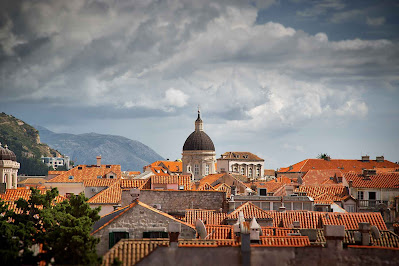What is the History of Croatia before World War II?
Introduction
Croatia, a country located in Southeast Europe, has a rich and diverse history that spans millennia. Before the outbreak of World War II, Croatia witnessed the rise and fall of several civilizations, shaping its cultural, political, and social landscape. In this article, we will delve into the pre-World War II history of Croatia, exploring significant events, rulers, and cultural developments that influenced the nation's trajectory.
Ancient Croatia: From Illyrians to Romans
The earliest history of Croatia dates back to the prehistoric period, where the region was inhabited by various tribes, including the Illyrians. The Illyrians were an ancient Indo-European people who played a crucial role in shaping the early culture of Croatia. As time progressed, the Roman Empire expanded its influence, and Croatia became a part of the Roman province of Pannonia. The Romans left a lasting impact on the region, introducing urbanization and Latin as a prominent language.
The Arrival of Slavs
During the early medieval period, Slavic tribes began migrating to the territory of present-day Croatia. The Croats, an ethnic group of Slavic origin, settled in the region and established several principalities. Notably, in the 9th century, Duke Branimir became the first recognized ruler of Croatia, and he managed to secure a degree of independence from Byzantine rule.
The Union of Croatia and Hungary
In the 11th century, Croatia entered into a personal union with the Kingdom of Hungary. This alliance allowed Croatia to preserve its autonomy and distinct identity while being under Hungarian kings. It was during this time that the Banate of Croatia emerged, a significant administrative unit led by a ban (viceroy) who governed the country.
The Golden Age of Croatia
The 15th and 16th centuries marked the "Golden Age" of Croatia. During this period, the country experienced a flourishing cultural and artistic renaissance. Notable writers, poets, and artists emerged, contributing to Croatia's rich cultural heritage. The University of Zagreb, founded in 1669, played a vital role in nurturing intellectual growth and academic achievements.
The Habsburg Rule
In the late 16th century, the Habsburgs, a powerful European dynasty, gained control over Croatia. The Habsburg rule lasted for several centuries and saw significant political and social changes within Croatia. Despite periods of unrest and uprisings, Croatia managed to preserve its distinct legal system and autonomy under the Habsburgs.
19th-century National Revival
The 19th century witnessed a national revival in Croatia, with a surge in cultural and political movements aimed at asserting Croatian identity and independence. Leaders like Ljudevit Gaj and Ivan Mažuranić played instrumental roles in promoting the use of the Croatian language and fostering a sense of national pride.
World War I and the Kingdom of Yugoslavia
At the end of World War I, Croatia became a part of the newly formed Kingdom of Serbs, Croats, and Slovenes, later renamed Yugoslavia. The interwar period saw political tensions and disputes, particularly between centralists and autonomists. Despite these challenges, Croatia made strides in education, industry, and infrastructure.
Conclusion
The history of Croatia before World War II is a fascinating tale of ancient civilizations, medieval kingdoms, and struggles for identity and independence. From the Illyrians to the Habsburgs, each era left its indelible mark on Croatia's heritage. This rich history laid the foundation for the modern nation we know today.
FAQs
What were the major tribes that inhabited ancient Croatia?
The major tribes that inhabited ancient Croatia were the Illyrians and later the Slavic Croats.
Who was the first recognized ruler of Croatia?
Duke Branimir was the first recognized ruler of Croatia in the 9th century.
When did Croatia enter into a union with Hungary?
Croatia entered into a personal union with the Kingdom of Hungary in the 11th century.
Which period is considered the "Golden Age" of Croatia?
The 15th and 16th centuries are considered the "Golden Age" of Croatia due to its cultural and artistic renaissance.
What were the major changes during the Habsburg rule in Croatia?
The Habsburg rule brought significant political and social changes, but Croatia managed to preserve its autonomy and legal system.
AIPRM - ChatGPT Prompts
Favorites
AIPRM
Public
Own
Hidden
Add List
Topic
SEO
Activity
All
Sort by
Top Votes Trending
Model
Not specific
Search
Prompts per Page
12
Showing 1 to 12 of 884 Prompts
Prev
Next
Human Written |100% Unique |SEO Optimized Article
SEO / Writing
·
Jumma
·
1 hour ago
6.2M
4.8M
1.3K





No comments:
Post a Comment